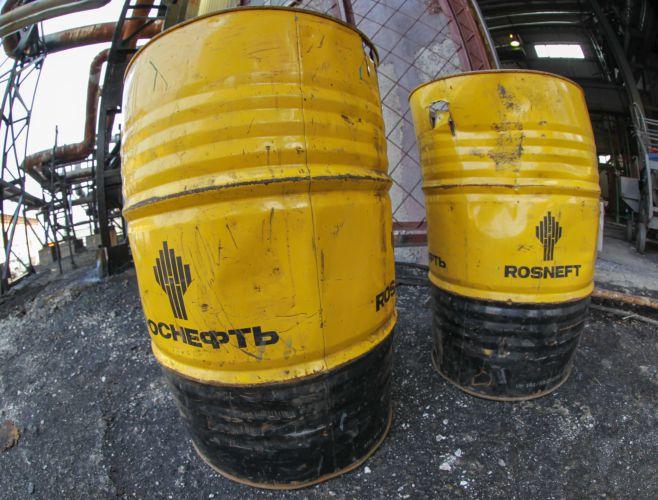
SWISS & RUSSIAN OIL

Swiss commodity trader Trafigura has become a major exporter of Russian oil as sanctions have squeezed Kremlin-backed companies' access to credit and led to a shake-up of how Moscow sells its crude.
Through a series of deals with Rosneft, the Russian state-controlled oil company, Trafigura exported almost 9m barrels of crude in April, worth more than $500m, according to port data compiled by Nefte Compass, an industry publication. Exports have continued at a broadly similar level in May.
This is a marked contrast to last year when Trafigura's deals with Rosneft rarely amounted to much more than 1m barrels a month from Russia's Baltic and Black Sea ports.
The Geneva-based trading house has gone from being a minor player in the Russian oil market to lifting more barrels from Rosneft than either Glencore or Vitol, its main rivals.
Bankers, trading houses and lawyers said the key to Trafigura's burgeoning Russian business was credit. The company has arranged pre-pay oil deals for physical cargoes that are permitted under sanctions, helping Rosneft raise short-term funds.
While US sanctions prohibit long-term dollar financing of Rosneft and other Russian companies, deals that run up to a period of 30 days are permitted, lawyers said.
"We use our balance sheet strength with many countries and companies to do prepayment business," a spokesman for Trafigura said. "That supports producers and secures our access to volumes, either alone or in partnership with our banks."
Russian companies have faced restricted borrowing options since Russia's intervention in Ukraine led to the introduction of western sanctions last year, forcing them to find alternative sources of finance.
This has been a particular issue for Rosneft, which has large debt repayments to meet after its $55bn buyout of TNK-BP two years ago, when oil prices were almost 70 per cent higher.
The sanctions were designed to ensure Europe was not cut off from the flows of Russian oil and gas that the continent relies on, even as they target Moscow's access to western technology and capital markets.
Trafigura has long harboured ambitions to increase its presence in the massive Russian oil market. Rosneft is the world's largest publicly listed oil company by production volume, pumping more than 5m barrels of oil equivalent a day.
In 2013 Trafigura hired a team of senior oil traders from TNK-BP months before it agreed to provide $1.5bn to Rosneft in a five-year pre-export finance deal in exchange for oil supplies. Deals struck before sanctions were implemented have been allowed to continue.
Claude Dauphin, Trafigura's executive chairman, hailed the 2013 deal as the "start" of a long-term relationship with Rosneft.
"We have been in Russia historically," Trafigura's chief executive Jeremy Weir told the FT Commodities Global Summit in April. "We have increased actively of late because, based on commercial business, we have seen a niche and obviously [operate] within the sanctions."
Fifteen banks are providing the financing to Trafigura for the pre-pay deals, said a person familiar with the matter.
Other trading houses have said they are unlikely to follow Trafigura's lead and will take a more cautious approach to dealing with sanctioned companies.
ft.com




